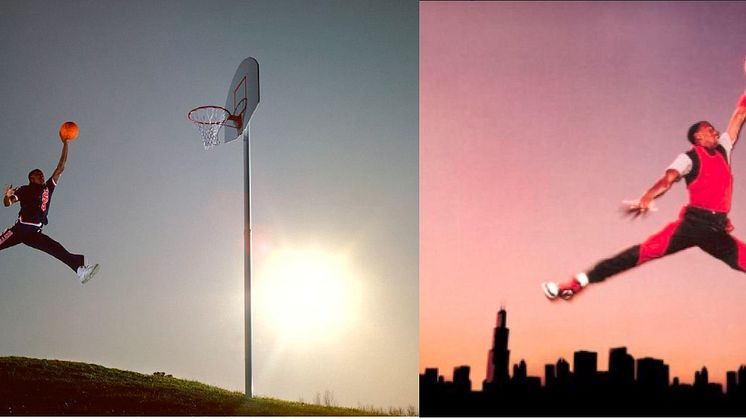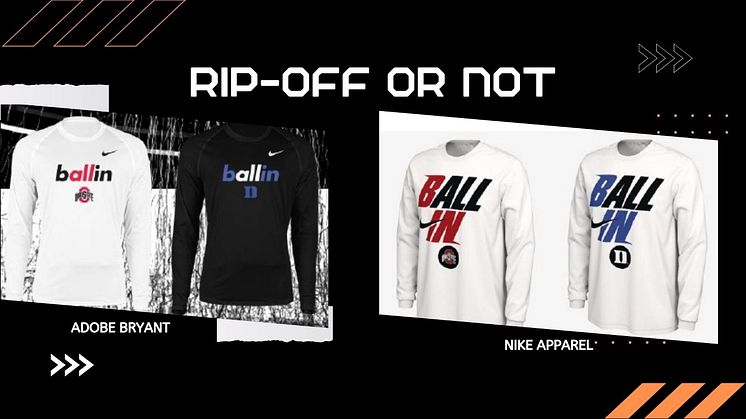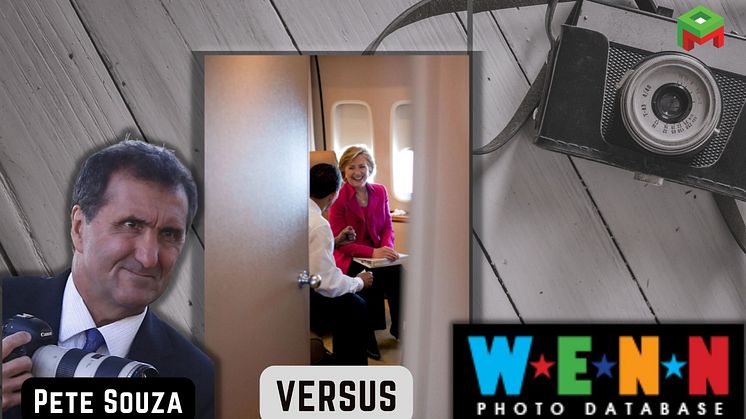
News -
Nike wins against photographer in 30-year-old photo copyright case
A photographer who is responsible for one of the most iconic images of all time has failed in his attempt to get the Supreme Court to listen to his case against Nike for copying his photograph.
Back in 1984, Jacobus Rentmeester, then a student at the University of North Carolina, photographed basketball star Michael Jordan for Life magazine. The photo originally appeared in Life magazine as part of a photo essay featuring American athletes who would soon be competing in the 1984 Summer Olympic Games.
Rentmeester's point of contention was that Nike infringed his copyright when it later commissioned its own photograph of Jordan and then used that photo to create one of its most iconic trademarks.
What stood out about Rentmeester's photograph was that he asked Jordan to strike an unusual pose for a basketball player, one inspired by ballet’s grand jeté, in which a dancer leaps with legs extended, one foot forward and the other back.
Not long after Rentmeester’s photograph appeared in Life magazine, Nike contacted him and asked to borrow color transparencies of the photo. Rentmeester provided Nike with two color transparencies for $150 under a limited license authorizing Nike to use the transparencies "for slide presentation only."
In late 1984 or early 1985, Nike hired a photographer to produce its own photograph of Jordan, one obviously inspired by Rentmeester’s.
When Rentmeester saw the Nike photo, he threatened to sue Nike for breach of the limited license governing use of his color transparencies. To head off litigation, Nike entered into a new agreement with Rentmeester in March 1985, under which the company agreed to pay US$15,000 for the right to continue using the Nike photo on posters and billboards in North America for a period of two years. Rentmeester alleged that Nike continued to use the photo well beyond that period.
In 1987, Nike created its iconic “Jumpman” logo, a solid black silhouette that tracks the outline of Jordan’s figure as it appears in the Nike photo. Nike has since used the logo to sell and market its merchandise. It has become one of Nike’s most recognizable trademarks.
When Rentmeester complained, he said Nike paid him US$15,000 for a two-year, North America-only license for posters and billboards. He said Nike broke those limitations as the company would go on to sell billions of dollars of merchandise with the Jumpman logo.
Rentmeester filed a lawsuit against Nike on January 2015, almost 30 years after Nike allegedly infringed on his photo of Michael Jordan, after he retired from his photography career. He claimed that both the Nike photo and the Jumpman logo infringe the copyright of his 1984 photo of Jordan.
The Ninth Circuit District Court had in 2018 determined that Nike's photographer did not copy the details of the pose as expressed in Rentmeester’s photo, but borrowed only the general idea or concept embodied in the photo. Nike's photo would have to be an exact replica for it to be considered an infringement.
The court notes that the angles of the limbs were different, with the Rentmeester photo suggesting horizontal/forward movement, while in Nike’s version Jordan's "completely straight limbs combine with the other elements to convey mainly a sense of vertical propulsion". The court also noted other distinguishing features that are "stark differences" from the position of the hoop to the fact that there is no foreground in the Nike photograph. Ultimately, the court finds, the similarities involve only non-copyrightable ideas and concepts.
With the high court’s rejecting the appeal by Rentmeester, the finding by the Ninth Circuit District Court that the company's image and logo did not infringe upon Rentmeester's photo copyright was upheld and Nike has won the lawsuit.


